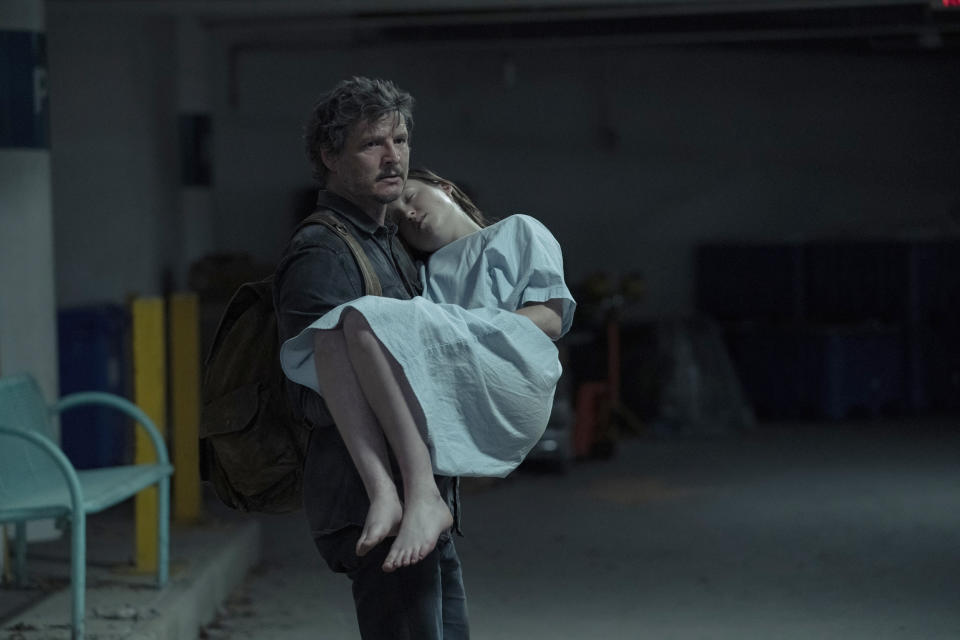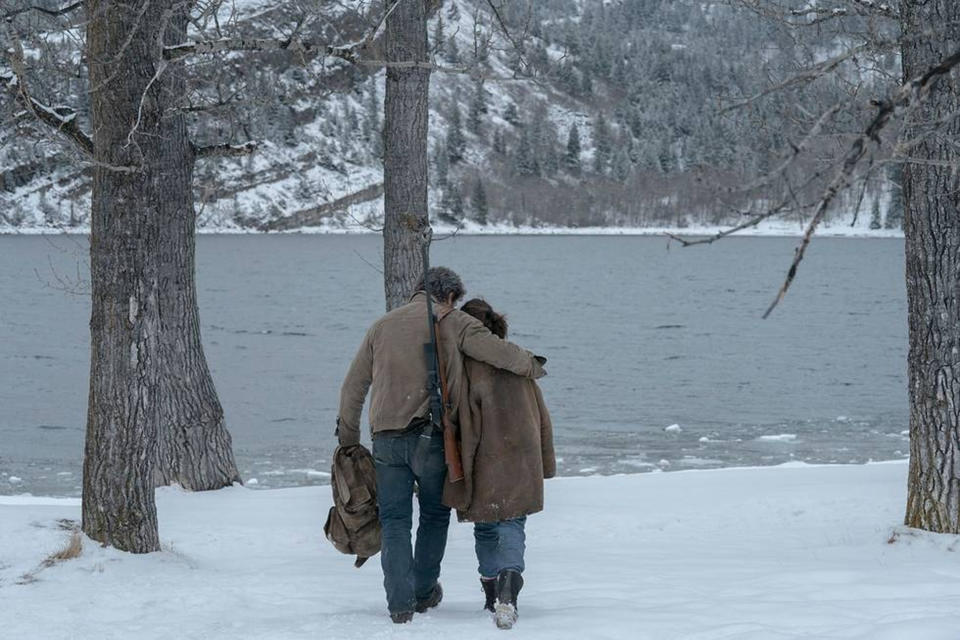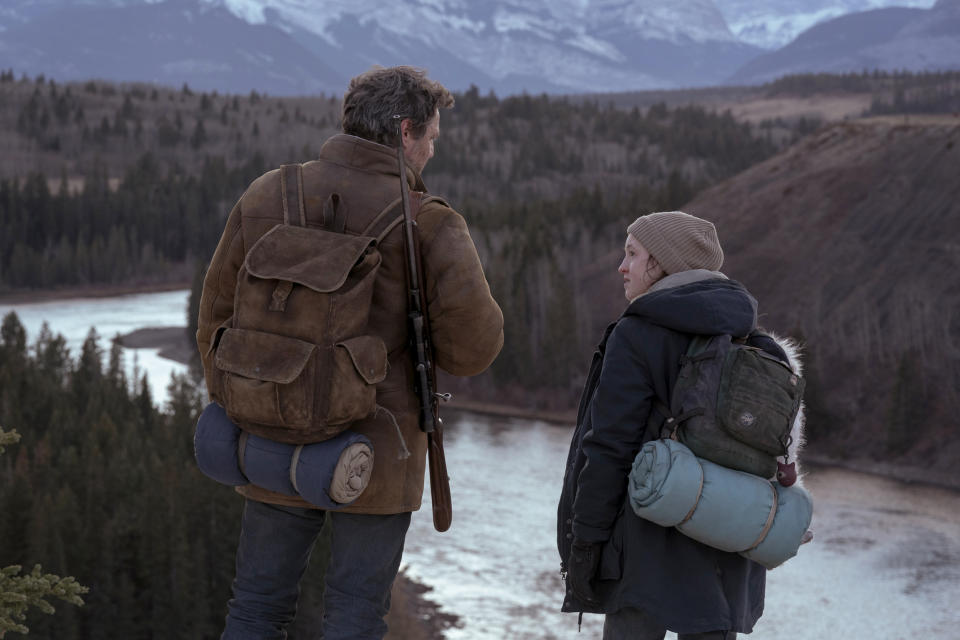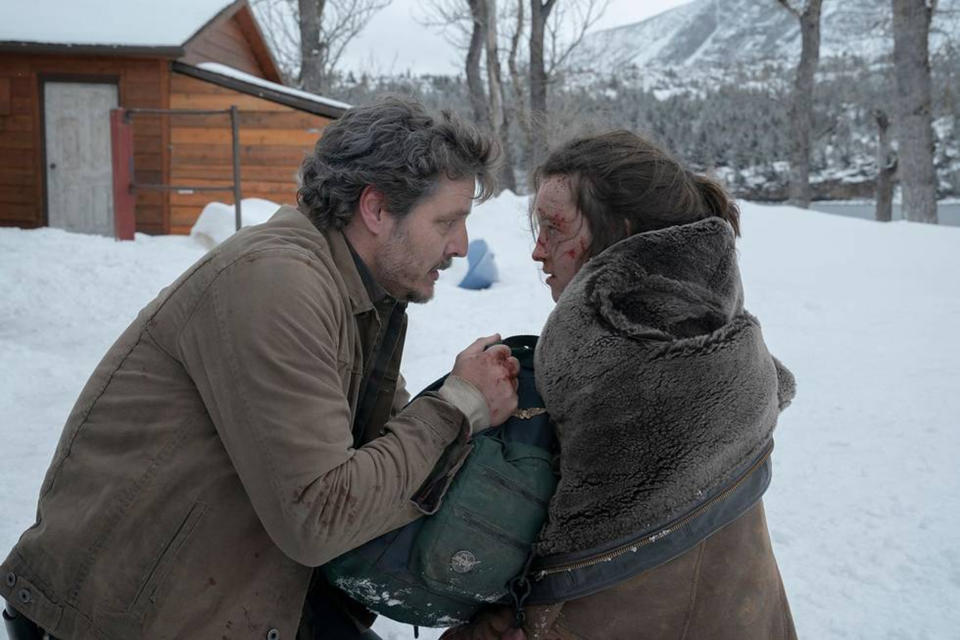Was Joel right? A philosophy prof on the morally murky 'The Last of Us' finale
- Oops!Something went wrong.Please try again later.
Warning: This article contains spoilers for the “The Last of Us” Season One.
The last episode of “The Last of Us” Season One was always going to be divisive, as any player of the original video game could tell you.
Before the episode aired, Bella Ramsey, who plays Ellie, predicted the finale would be polarizing, telling British Vogue earlier this month that it would “divide people massively — massively.”
True to Ramsey’s word, the finale has caused controversy: Fans have some serious feelings over Joel’s (Pedro Pascal) decision to save Ellie (Ramsey), who has become like a second daughter, over the rest of humanity in the season finale (“Look for the Light”).
To recap, Ellie, and Ellie alone, holds the cure to a fungal infection that has killed off pretty much the entire population leaving a decades-long zombie apocalypse in its wake. Rather than let doctors perform a surgery to extract her Cordyceps-infused brain, Joel rescues her from the hospital (carrying out another massacre in the process). Joel then lies to Ellie, telling her the search for a cure is off.

Viewers are taking to Twitter to express both their dismay and support for his actions. Under the hashtag #joeldidnothingwrong, fans of the show are defending Joel, with one tweeting, “Joel did what any father would have done.” Another comment, “I believe everyone would say what Joel did was the ‘evil’ choice but if we were in his shoes we all would’ve done it as well.” Others disagree, however, with one person calling him a “selfish monster.”
People are grappling with how Joel’s choice can seem objectively wrong, yet also understandable.
“Joel’s choice at the end of the Last of Us season/part 1 was wrong,” tweets ThatOldGamerGuy, who says, “Most of us would make the exact same ‘wrong’ choice as it’s against human nature to sacrifice a dearly loved one for a chance at a greater good being done.”

“The Last of Us” finale stirs the pot of ethical debates over what matters more: The life of a single, beloved person or the lives of many more. Essentially, the online chorus is saying, just because Joel was morally wrong, that doesn’t mean he wasn’t right.
But how does that moral math check out? We asked a philosophy professor.
“Do we have special moral obligations that are local to just the people we care about and do they outweigh or override our obligations to the whole?” Steven Gimbel, professor of philosophy at Gettysburg College in Pennsylvania, asks in an interview with TODAY.com.
The answer is: It’s complicated.
While most of us would like to believe we’d put the greater good of the world before our own needs, when faced with the decision of losing a child or other loved one, chances are, we’d choose selfishly, Gimbel says.

“We are wired to respond more strongly to people we care about and to people we think are like us,” Gimbel says.
But the decision to prioritize loved ones over the greater good of literally everyone else — Joel's decision — may merit a more black-and-white judgment.
“If we’re talking about the wellbeing of all humanity, now that seems a different case,” Gimbel explains. “We can understand why Joel made the decision he did. Most people, including me, would’ve made that decision.”
Yet, Gimbel says, the right thing would have been to have acted in the general interest of the world. “It would’ve hurt, but sometimes the right thing is hard to do,” he says.
That said, there's no way of knowing whether the doctor's procedure would have worked, and if Ellie's sacrifice would have actually been for the greater good.

Even “The Last of Us” show creator Craig Mazin is wrestling with Joel’s decision and all its implications.
In a story published by The Hollywood Reporter, Mazin says, “When you love something unconditionally, logic goes out the window and you will do really horrible things to protect the ones you love.”
Given their history of making sacrifices to save each other on their journey from Boston to Wyoming and Utah in the series, Mazin says Joel’s final decision leaves him “confused ... morally.”
“I think it’s a difficult choice,” he says, according to The Hollywood Reporter. “I go back and forth. I think a lot of people will go back and forth on it.”
This article was originally published on TODAY.com

